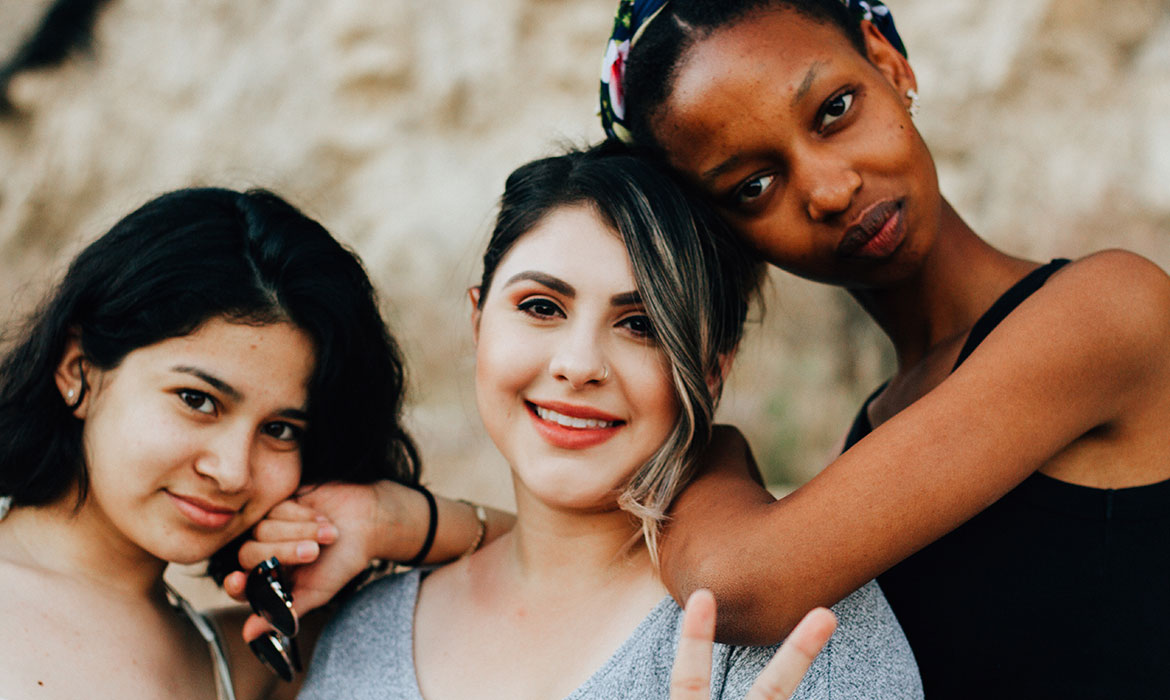Talking about race and reconciliation has never been easy. Some folks stay away from conversations on race because they are too awkward or volatile. Others desire to enter into discussions but don’t know where to begin. Below are four key questions for reflection to help anyone interested in Christ’s work of racial reconciliation.
Have I Embraced My Identity?
In Matthew 5:9 Jesus says, “Blessed are the peacemakers, for they shall be called sons of God.” In this verse, He is not telling us what to do. He’s telling us who we are. We are peacemakers. It is important to remember that peace can only be “made” in places or in relationships where it is either missing or broken.
Peace keeping is what the church has been good at for a very long time. Maintaining and protecting peace where we find it is something that comes very naturally to almost everyone. We like to find peaceful and comfortable places and relationships then hold on to those things at all cost. But in many cases, peacekeeping and selfishness are almost synonymous. To keep peace is often to hunker down and isolate oneself from the suffering in the world around us. But to make peace means to get out of our comfort zones and to enter into contexts where peace is compromised or missing.
This is risky business because it means we will need to step into territory where it is no longer safe and controllable. We run the risk of being misunderstood, rejected, or possibly harmed.
Sometimes peacemaking means taking the time to hear and learn difficult truths about the past and the present then taking the necessary steps of repentance, reconciliation, and restoration.
Ever since Genesis 3 there has been an absence of peace—between God and us and between our fellow humans and us. The racial tensions and the racism that exist today are some of the foul fruit of the Fall that has affected many of our relationships. This is why being a peacemaker is such a crucial role for each person who considers himself a disciple of Christ.
Am I Connected?
The human body is an amazing thing. If you have ever slammed your finger in a door you will recall how your body responds with care and compassion. Your mouth cries out to vocalize your pain. Your free hand rushes to grip the wounded finger and bring it peace. The rest of your body ceases whatever else it was doing and does what it can to alleviate the pain of the wounded appendage. This is how a healthy body should respond. Our nerves, muscles, synapses, and limbs are interconnected, communicate, and respond efficiently to protect every aspect of the body.
The Apostle Paul tells us in I Corinthians 12 that Christ-followers are part of “the body of Christ.” Each of us comprises a specific appendage of this body and provides unique value and service to the body. Every part is needed for the body to function and flourish. In verse 26 he writes, “If one member suffers, all suffer together; if one member is honored, all rejoice together.”
This verse is really Paul’s litmus test to reveal whether or not we are connected and thriving as a body. When one member of our body suffers, do we cosuffer? When one of us (or a group of us) are slammed in the door of life, do we feel each other’s pain? Do we stop what we are doing to help those who are oppressed? Do we do what we can to cry out, to embrace the wounded member, and to provide peace? Or . . . are we indifferent and disconnected?
When we witness acts of racism or racialized pain on television and social media, how do we react? Is our first reaction to scroll past it? Or perhaps we try to cerebrally rationalize what happened and then pontificate about the matter instead. Or do we grieve with those who are suffering? Are we reminded that Jesus took the time to hear the anger of Mary and Martha and to weep over Lazarus’s death Himself before He called the dead man out of the tomb?
Because Christ was deeply connected to those who were suffering, He faithfully demonstrated compassion and mercy.
Do I Have Diverse Mentors?
I spent over half of my early years in a white middle-class world. Because of that, almost all of my teachers, pastors, mentors, coaches, and guides throughout life were white as well. This wasn’t necessarily a bad thing, but the homogeneity of these influencers galvanized a fairly monolithic worldview, theology, and understanding of history.
During the last fifteen years, my family and I have lived in a predominantly African-American neighborhood, and I work at a school where almost 95% of the students are African-American. Having different neighbors and working at a place where I am now the minority has had a profound impact on me.
For one thing, many of my inherited paradigms on race and reconciliation have been stretched and challenged. Building diverse relationships and spending most of my time immersed in a culture unique to my own upbringing has been a blessing. I have even come to recognize that much of my understanding of American history is one-dimensional and very myopic. This has created a deep hunger in me to learn even more.
Secondly, I have become a huge consumer of literature and theology written by minorities. Most of the podcasts and sermons on my iPod are from minority pastors and thinkers. I believe that if I want to grow in my own racial understanding and better grasp steps towards reconciliation then I need to willingly step out of my own “amen corners” and be shaped and mentored by leaders, thinkers, and Christ-followers from other cultures.
This is a big but crucial step for anyone seeking to grow in his or her own understanding of race, racism, and reconciliation. We must be conversant with diverse people and their thoughts if we want to enter the arena of diversity with humility and wisdom.
Am I Willing to Be Misunderstood?
Finally, if we are going to enter into discussions about race and develop more diverse relationships, there will be awkward and even painful moments. Like learning a new dance, we need to embrace the reality that it may take a lot of time to learn the choreography. We must be willing to risk asking silly questions and appearing foolish. If someone were to tell us that our attitude is paternalistic or our actions are prejudiced, would we be humble enough to hear that without being offended?
Someone once said that “reconciliation is a bridge, and bridges get walked on.” Walking the road to reconciliation means that we might get run over by other people. Uncomfortable (but necessary) truth might trample us. Burnout and extreme discouragement might even stampede us.
But we need not lose heart.
Our Savior Jesus Christ willingly walked the road of reconciliation on our behalf. He was the ultimate Peacemaker. He lamented with those who were suffering. Though He knew all things, He made Himself teachable and submitted to the will of the Father. And though His intentions and actions were perfect, He spent most of His ministry being misunderstood. Thankfully He never deterred from His path, but He continued to walk the road of reconciliation all the way to the Cross for you and me.
 by Ben Sciacca, author of Meals From Mars
by Ben Sciacca, author of Meals From Mars
A fateful encounter late at night at a gas station in the hood brings together a white man from the suburbs and a young black man from the neighborhood. Stuck with each other for the night, they deal with their core prejudices, the walls that keep them from each other, and the discovery of their God-given humanity in one another.
When talking about race, it helps to have something specific to talk about―a story we can all wrap our heads around. In Meals from Mars, Ben Sciacca provides that story: two men from different worlds forced by circumstance to see and hear and consider one another. It is a novel that demonstrates the social challenges and relational potential for racial reconciliation.
See all Recommended Resources for Starting a Conversation on Race and Faith HERE>>






